Masking the Spirit of 2020
Explore 13 ways of thinking about masks inspired by the 13 departments in the College of Liberal Arts.
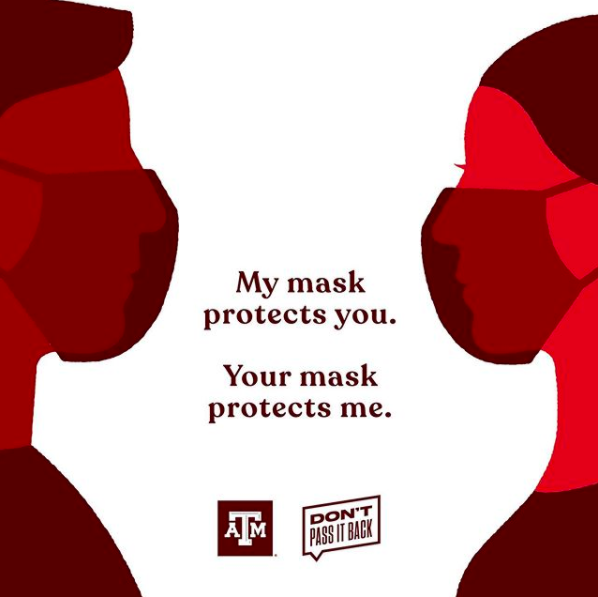
By Heather Rodriguez ‘04 and Rachel Knight ‘18
Symbols are often used to identify and define a certain period of time. The 1970s had peace signs; the 1980s had the MTV logo; and, most likely, 2020 will be known for face masks, due to the COVID-19 pandemic.
In the spirit of thinking outside the box and imagining things a little differently, the College of Liberal Arts at Texas A&M University came up with 13 ways of thinking about masks inspired by the college’s 13 departments.
While some of these ways of thinking relate directly to COVID-19, others are more whimsical and offer a nice break from pandemic related content. We hope you’ll join us in “masking-up” in the spirit of 2020.
Anthropology
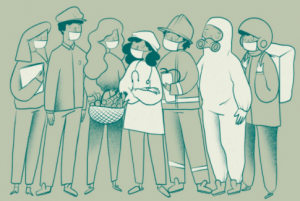
Anthropologists study culture. Thanks to anthropologists, we are able to better understand things like traditions and symbols at Texas A&M. Masks are part of our pandemic culture, and as one anthropologist suggests, they symbolize civic responsibility during a global pandemic.
Communication
Masked love statements
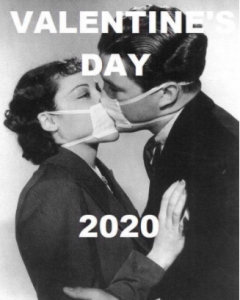
Communication majors at Texas A&M study both verbal and nonverbal communication cues. On Valentine’s Day, it’s easy to spot nonverbal communication cues as lovers exchange greeting cards and gifts. This year as COVID-19 swept through China, couples exchanged masks, sanitizers, and alcohol wipes instead of letters and chocolates. How have your nonverbal communication cues changed during the pandemic?
Economics
Saving lives & the economy

Wearing a face mask may save more than experts originally thought. In addition to saving tens or thousands of lives, wearing a face mask just might be the best way to do your part in saving the economy.
English
Invisible Mask
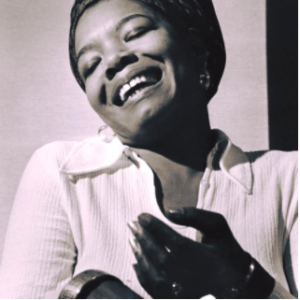
Though wearing a mask is highly visible during the COVID-19 pandemic, some masks are harder to see unless we really look for them. Maya Agnelou speaks of a different kind of mask worn out of love in her poem titled, “The Mask.”
Hispanic Studies
Behind the máscaras
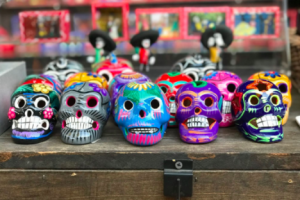
Hilaire Kallendorf, a professor of Hispanic and religious studies, researches the many aspects of religious experience. While people don colorful masks to celebrate Dia de los Muertos today, this was not always the case. In an article the college published in celebration of Dia de los Muertos and Halloween, Kallendorf says there’s more to Dia de los Muertos than commercial depictions of it suggest.
Interdisciplinary Critical Studies
Masking it all
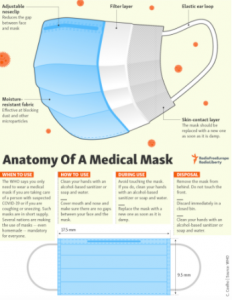
Just as fabric, thread, and elastic form a mask, Africana Studies, Film and Media Studies, Latino/a and Mexican American Studies, Religious Studies, and Women’s and Gender Studies form Interdisciplinary Critical Studies in the College of Liberal Arts. Together each part makes a stronger and more effective student.
International Studies
Masks across the globe
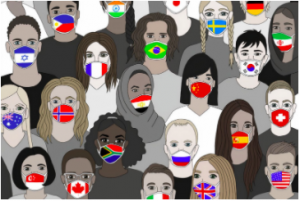
In addition to being used to protect people in 2020 from the coronavirus, masks have been used for centuries across the globe as religious symbols, representations of animals, and to disguise people’s identities. Learn about various international uses of masks to get in the spirit of international studies!
Performance Studies
Theatrical masks
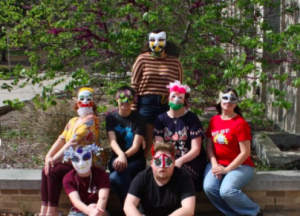
Masks have been used in theatrical performances throughout history. Last summer, students participated in a mask workshop led by performance studies professor Rayna Dexter. During the workshop, each student randomly chose one flower/plant name and one stock character from hats. The words they drew served as inspiration to design a mask for their character. This fall students can learn more about the use of masks in costume design by taking Dexter’s collaborative design process class.
Philosophy
Give me liberty; give me a mask
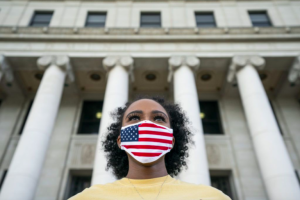
Perhaps there’s nothing more American than debating the balance between protecting personal liberty and promoting the collective good. The COVID-19 pandemic has brought this debate into the spotlight, as many debate whether or not to wear a mask. Clare Palmer, the George T. and Gladys H. Abell Professor of Liberal Arts and professor of philosophy, explains the importance of this topic in Scientific Inquiry.
Political Science
Masks for president
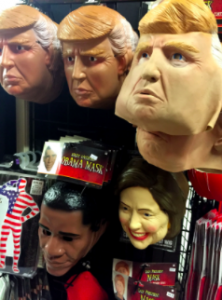
Halloween mask sales may be an accurate way to predict the outcome of American presidential elections. Surveys of Halloween Spirit stores have correctly reflected victories in presidential races since Bill Clinton was elected in 1996! Want to know more about the mass political economy? Checkout Guy Whitten’s research.
Psychological & Brain Sciences
Fight boredom by masking up
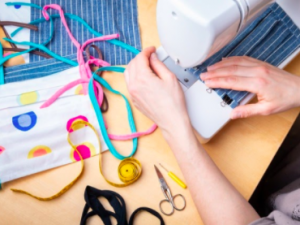
Cope with boredom by seeking a new hobby. That’s the advice Dr. Heather Lench, department head of psychological and brain sciences, gave at the beginning of the COVID-19 pandemic. Sewing masks may be the best hobby to try, because in addition to fighting boredom it also helps ease COVID-19 related anxiety.
Sociology
Accepting change
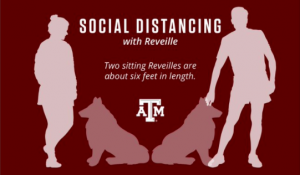
The world as we know it will look different after the coronavirus pandemic, according to Joe Feagin, sociologist and former American Sociological Association president. The longer we live our daily lives adapting to the pandemic, the more likely we are to permanently change our social behaviors to include increased hygiene. Accepting these changes now and wearing a mask could save lives, the economy, and preserve some of the social norms from before the latest global pandemic.
